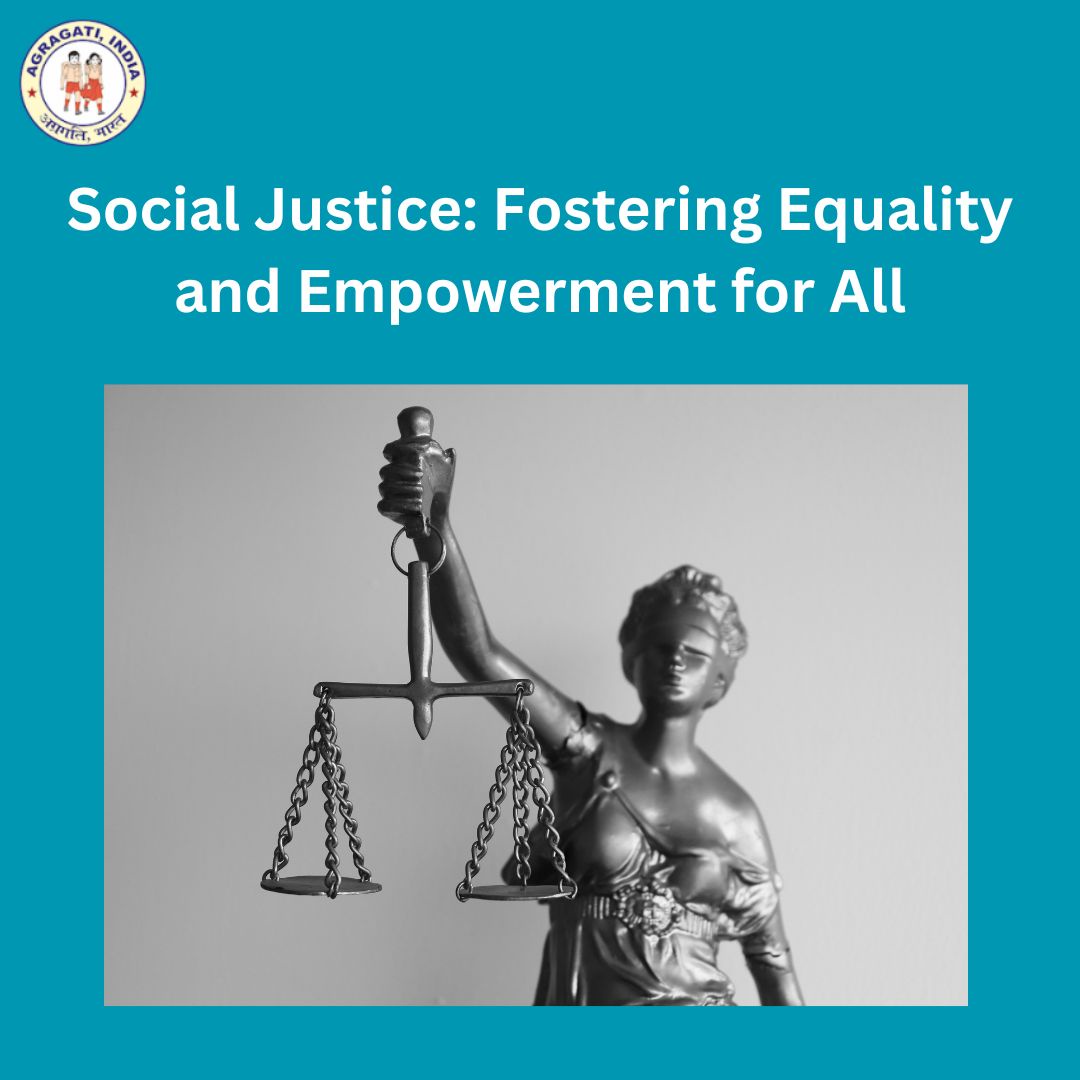Introduction
Social justice is a fundamental principle that underpins the pursuit of a fair and equitable society. It encompasses providing equal opportunities, resources, and rights to every individual, regardless of race, ethnicity, gender, or socio-economic background. For Non-Governmental Organizations (NGOs) dedicated to the cause of social transformation, social justice serves as a guiding light in their efforts to create a world where everyone can live with dignity and thrive.
Understanding Social Justice
At its core, social justice advocates for the elimination of all forms of discrimination and inequality. It calls for the recognition of every person's inherent worth and the protection of their rights. Social justice aims to dismantle the barriers that prevent individuals and communities from accessing essential resources, opportunities, and services. By addressing the root causes of inequality and advocating for systemic changes, social justice seeks to create a society where everyone has the chance to fulfill their potential and lead a fulfilling life.
The Pillars of Social Justice
Social justice rests upon several pillars that guide its implementation and impact:
3.1 Equality
Ensuring that all individuals have equal access to opportunities, resources, and rights, irrespective of their background.
3.2 Equity
Recognizing that different individuals and communities have different needs and addressing these disparities to achieve fairness.
3.3 Inclusion
Promoting the active participation and representation of marginalized groups in decision-making processes and societal institutions.
3.4 Human Rights
Upholding and safeguarding the fundamental rights and freedoms of all individuals, as enshrined in international declarations and conventions.
3.5 Advocacy and Empowerment
Standing up for the rights of the oppressed and empowering them to become agents of change.
The Role of NGOs in Advancing Social Justice
NGOs play a crucial role in advancing the cause of social justice due to their unique characteristics and approaches. They work closely with local communities to understand their needs, challenges, and aspirations. This grassroots engagement enables them to design targeted interventions that address specific issues and promote social justice. NGOs also raise awareness about social justice issues and advocate for policy changes at local, national, and international levels. By providing capacity-building programs, they empower individuals and communities to advocate for their rights and secure their well-being. Moreover, NGOs forge alliances with governments, other organizations, and private entities to pool resources and expertise, maximizing their impact on social justice issues.
Addressing Inequality and Discrimination
Social justice initiatives encompass a wide range of areas that aim to tackle various forms of inequality and discrimination:
5.1 Educational Equity
NGOs strive to ensure that every child, regardless of their socio-economic background, has access to quality education. They provide scholarships, school infrastructure, and teacher training programs to bridge educational gaps.
5.2 Healthcare Access
Health disparities are a pressing concern in many regions. NGOs work to improve healthcare access and affordability, particularly in underserved areas, through mobile clinics, awareness campaigns, and partnerships with medical professionals.
5.3 Poverty Alleviation
Poverty is a significant barrier to social justice. NGOs implement poverty alleviation programs that provide financial assistance, livelihood training, and microcredit facilities to uplift disadvantaged communities.
5.4 Gender Equality
Gender-based discrimination remains pervasive in many societies. NGOs promote gender equality through women empowerment initiatives, awareness campaigns, and advocacy for women's rights.
5.5 Environmental Justice
Environmental degradation disproportionately affects vulnerable communities. NGOs engage in environmental conservation efforts, sustainable development projects, and climate change advocacy to promote environmental justice.
Challenges in Pursuing Social Justice
While the pursuit of social justice is noble, it comes with its own set of challenges:
NGOs encounter challenges such as resistance to change, resource constraints, policy barriers, and widening socio-economic disparities. To achieve lasting impact, they must navigate these obstacles with persistence and innovation.
Impact of Social Justice Initiatives
Despite the challenges, the impact of social justice initiatives led by NGOs has been remarkable:
Through their educational and empowerment initiatives, NGOs have empowered individuals to break free from the cycle of poverty and become active contributors to society. Their efforts in improving healthcare access and promoting gender equality have led to better health outcomes and increased female representation in various spheres. Additionally, environmental conservation and climate change advocacy have fostered community resilience against environmental challenges.
Promoting Social Justice through Collaboration
To achieve lasting impact, NGOs must work in synergy with governments, international organizations, and local stakeholders. Collaboration is vital for leveraging resources, sharing knowledge, and formulating comprehensive strategies to address social justice issues effectively.
Conclusion
Social justice is the cornerstone of building a just and inclusive society. NGOs play a crucial role in advocating for equality, empowerment, and human rights, driving transformative change for marginalized communities. By addressing educational disparities, improving healthcare access, promoting gender equality, and advancing environmental conservation, NGOs pave the way for a brighter and more equitable future. While challenges persist, the collective efforts of NGOs and their collaborators demonstrate that social justice is not an abstract ideal but a tangible goal that can be achieved through persistent dedication and unwavering commitment.
FAQs (Frequently Asked Questions)
1. Why is social justice important?
Social justice is crucial as it ensures fairness, equality, and dignity for all individuals, promoting a harmonious and inclusive society.
2. How do NGOs promote social justice?
NGOs promote social justice through community-centric initiatives, advocacy, capacity building, partnerships, and evidence-based strategies.
3. What do social justice initiatives address the key areas?
Social justice initiatives encompass education, healthcare, poverty alleviation, gender equality, environmental conservation, and advocacy for human rights.
4. What challenges do NGOs face in pursuing social justice? NGOs encounter challenges such as resistance to change, resource constraints, policy barriers, and widening socio-economic disparities.
5. How can individuals support social justice initiatives? Individuals can support social justice initiatives by contributing to NGOs, raising awareness, volunteering, and advocating for equality and human rights.


No comments yet